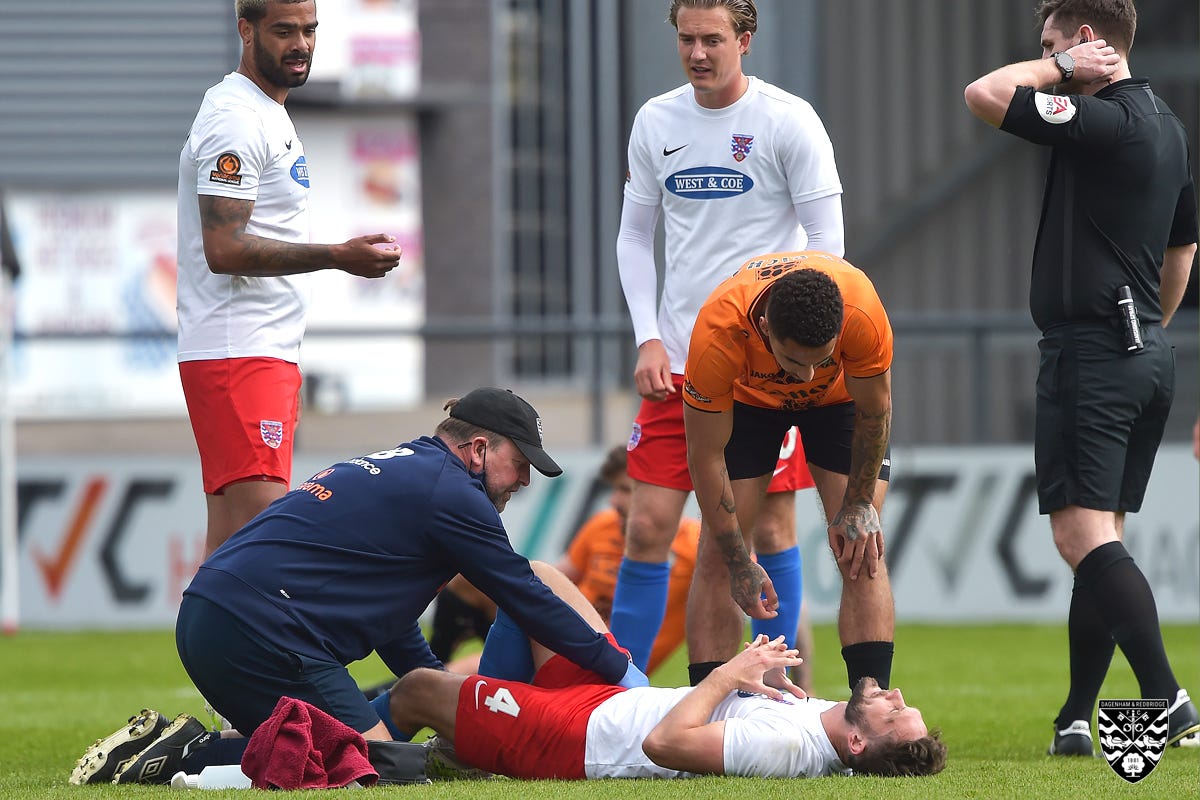A new piece written for me from Bromsgrove Sporting physio Gavin Blackwell on the perils of a new manager coming into a club and the whirlwind change takes full effect:During my 35 years in football I have often spent some of the close season either on a course or at a conference and news of medical staff dismissals is never far from the topic of conversation.
For Dave Butler, Roy Bailey (twice), Ian Liversedge (four times) and Dave Galley who described being sacked five times in his career in Life Stories for Physiquipe. ‘Luckily not for doing anything wrong. Just that a new manager come into the club and said sorry I’m bringing my own physio in.’
That’s it point blank, you’re out, you feel like you’ve done something wrong you feel terrible and feel like a bit of dirt on the end of your shoe, that experience remains raw.
In 1991 Bailey was dismissed by then Manchester City manager Peter Reid having spent 20 years looking after the needs of the club’s injured players. It was one of the worst days of his life, shattering both him and his family. Reflecting on that day, Roy said; “No one will ever understand how hurt I was. It’s a feeling that I’ll never forget.” Roy’s departure from the club left him a void, and it took him a while to get over.
In football you work as part of a team, as Dave Butler described in 1996 “I love the day-to-day involvement with the players, the atmosphere, the humour and camaraderie. But if things change for whatever reason, you can’t blend in for whatever reason, you’re finished.’ In the beautiful game ‘that can happen without even knowing.’ He explains how he was unexpectedly sacked by QPR and admits that he cried his eyes out. He was then sacked by Ossie Ardiles at Tottenham Hotspur despite then chairman Alan Sugar promising him faithfully his job was safe.
Ian Liversedge – who wrote the book Life’s A Ball: Highs and Lows of a Football Physio – describes in his own experiences on one chapter. Following Micky Mellon’s departure from Fleetwood Town in 2013, new manager Graham Alexander just pulled him to one side and told him that he had had a long think and decided to release him; “Graham wanted to stamp his own authority on the club and that was his prerogative. ‘I know you wouldn’t want to be a number two’”. Ian just walked out of the De Vere Hotel gym in Blackpool and didn’t look back.
He wasn’t the sort to hang around and shake hands, it’s not his style. The players who really cared and knew him well rang and texted, the rest couldn’t give a toss because they were just out to look after themselves. People move on all the time in football of course, it’s no big deal. This was his fourth time he had been sacked. It’s not nice when you’ve done nothing wrong, mistreated anyone or been unprofessional.
Neil Warnock, who has now retired from management when appointed manager of Plymouth Argyle in the close season of 1995 made a couple of signings. However, Argyle’s next import was not a player, but Norman Medhurst, the Torquay United physiotherapist who struck up a friendship with Warnock during his brief spell as a managerial consultant to the south-west club. “I’m just delighted to have got someone of his calibre,” said Warnock. “You want your own men and I was always impressed with Norman from my time at Torquay.
‘I have explained to Paul that that’s football, I’m afraid.’ The former Inter Milan manager Helenio Herrera describing changing medical staff being much more simpler than that. ‘If I get rid of someone it’s because he’s not right for the way I do things. I’m not in any way questioning his professional abilities and accept that he might do perfectly well elsewhere, he just doesn’t fit in with my ideas.’
When Terry Venables was appointed England manager he agreed that long serving physios Fred Street and Norman Medhurst had done a very good job and were both utterly dedicated to England, but in this department, it was time for a change. “We needed a new dash of enthusiasm and fresh ideas.”
Many managers have opted to make changes to medical personnel including current Manchester City boss Pep Guardiola and Belgium national team head coach Roberto Martinez. But as Alex Ferguson once said; is it merely about proving your “manhood”? There is an argument that there is no point in suddenly changing routines that players are comfortable with – ‘It can be counterproductive, saps morale and immediately provokes players to question the new man’s motives. A leader who arrives in a big club setting or inherits a big club role, needs to curb his impulse to display his manhood.’ Inevitably though these decisions show the other side of the beautiful game, the one where people get hurt and heartbreak is only a result away.





It would be hard to imagine that this type of hiring and firing would take place in any 'normal' form of employment. It seems to be accepted in football and would most likely be illegal in other employment.